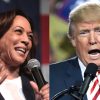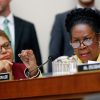The intense and righteous struggle to immediately appoint a qualified representative for the children and community of District 1 to the LAUSD Board of Education in the person of Dr. George McKenna, whose qualifications no one seriously questioned, did not achieve its central goal, but was nevertheless a well-fought battle with implications, lessons and even achievements useful for the ongoing struggle. For surely this racialized, insensitive and unjust decision by the board to deny urgent and rightful representation to our children and community is by no means the end of it and thus the struggle must and will continue.
Clearly, the struggle proved the strong interest of the people in the vital and urgent issue of the representation and quality education of our children, actively involving students, teachers, parents, administrators and other professionals, politicians of various motives and motivations, community activists and the community at large. Moreover, it demonstrated to those who assumed it would be a “done deal” that “business-as-usual” could not be done and that plantation politics, even in corporate and public forms and finery, do not offer a good future. And it also laid the active basis for the coming community struggle for rightful representation, moving toward and during the elections in opposition to those who confuse personal and class interests with community and mass interests.
Finally, the struggle revealed once again our need to constantly reject and resist White folks’ entrenched racialized and even racist paternalism, which arrogantly assumes the right and responsibility to define our problems, to represent our best interests, to deny our right of representation and presence, and to assemble an endless array of hirelings and handmaidens to convince us this is sane, healthy and can’t be helped.
To divert the discussion and win their way, some people had raised issues of voting rights struggles, self-determination and democracy. But the issue was never about the right to vote or the right to self-determination, nor the need to defend democracy as the diversionists claimed. For no one sane or serious would deny that the people of District 1 or any other district has the legal and moral right to vote and should vote and practice selfdetermination. Thus, introducing unrelated comments about dying and other sacrifices to obtain the right to vote was neither necessary nor appropriate and tended to divert the discussion rather than define and focus it on the real issue. Nor was the issue one about the value of democracy or about one politician’s claim before the board that “democracy is good everywhere and all the time”. Indeed, this sounded more like a believer’s characteristic praise of God than what is appropriate for a human construction called democracy whose history in White hands has not always been good and certainly not godly for us or other peoples of color.
In the midst of our struggles on the many battlefields and fronts of the Black Freedom Movement, Min. Malcolm X observed that in the context of racial and class oppression, Black people are not so much the beneficiaries of American democracy as they are its victims. For he reasoned, it was not a democracy of, by and for the people, but rather a herrenvolk democracy. That is to say, a democracy of the dominant people, the ruling race, i.e., White people. For Malcolm knew the history of this democracy from its genocidal, enslaving and exclusionary beginnings to its current corporate buying and selling of elections, privatizing public wealth, space and service, and the continuing discriminatory, deadly and disastrous practices toward Black people and
other peoples of color in almost every area of society. And it is in this context that we see how our children and their education can become victims on the altar of “democratic” racial dominance. This procedural formality allows Whites to maintain their selfcongratulatory claims of justice and democracy without altering at all relations and realities of wealth, power and status.
But again, the real issue was/is the right to representation, timely and effective representation. Even when we talk of elections or appointing until elections, we are talking about the people’s right and need for representation, i.e., the right of presence and effective participation in every decision before the board concerning the quality, conception, conditions and practice of education for our children. And this is no small matter, especially under the current circumstances in which the board must make decisions on numerous critical issues concerning budget, curriculum, technology, construction, discipline protocols, etc., which will have positive or negative effects on the education and social interests of our children and community for generations to come.
It is Amilcar Cabral who taught us that given the difficult demands and protracted nature of our struggle, we should “mask no difficulties, tell no lies and claim no easy victories”. So, the struggle continues and demands from us a resilience, resourcefulness and level of resistance not popular now nor seen as possible and desirable by the do-nothings, delayers, petty deal makers and the leaders who pursue personal ambitions at the expense of our children and our people. Indeed, the people must demand more from those who speak in their name, but act against their interests.
And they must call to account, expose and retire those who bend and bow, and twist and turn in vulgar, undignified and demeaning ways to feather their nests, feed from the corporate trough of funds and favors and seek that self-deluding “comfortable” place in oppression, reserved for those who settle for the least and pretend, preach and profess it’s the best they and we can do.
Certainly, we cannot deny or take lightly the entrenched system of compromised and compromising leadership, the silo conception of organizational interests that plagues both small and major organizations, and their zerosum attitudes, cultivated by corporate controllers, handlers and hustlers who are resolved and ever-ready to dominate, purchase, privatize and profit from every aspect and area of life. But it should be noted that regardless of their new technologies and accompanying talk, they always rely on division, disinformation and convincing a people and their leaders to accept their definition of reality even when it’s to that people’s disadvantage. And thus, they always work against our selfconscious, organized and active unity which translates into a liberated and liberating movement.
For they know that a people united, conscious of its enemy and itself, and willing to take it all the way and wage struggle for good in the world as a way of life can never be defeated. This is a fundamental lesson of our history and an ethical imperative in our selfunderstanding and self-assertion in the world. And these critical times call on us to remember this lesson and imperative and act with the dignity, discipline, determination and victorious consciousness our righteous and relentless struggle demands.
Dr. Maulana Karenga, Professor and Chair of Africana Studies, California State University-Long Beach; Executive Director, African American Cultural Center (Us); Creator of Kwanzaa; and author of Kwanzaa: A Celebration of Family, Community and Culture and Introduction to Black Studies, 4th Edition, www.OfficialKwanzaaWebsite.org; www.MaulanaKarenga.org.















